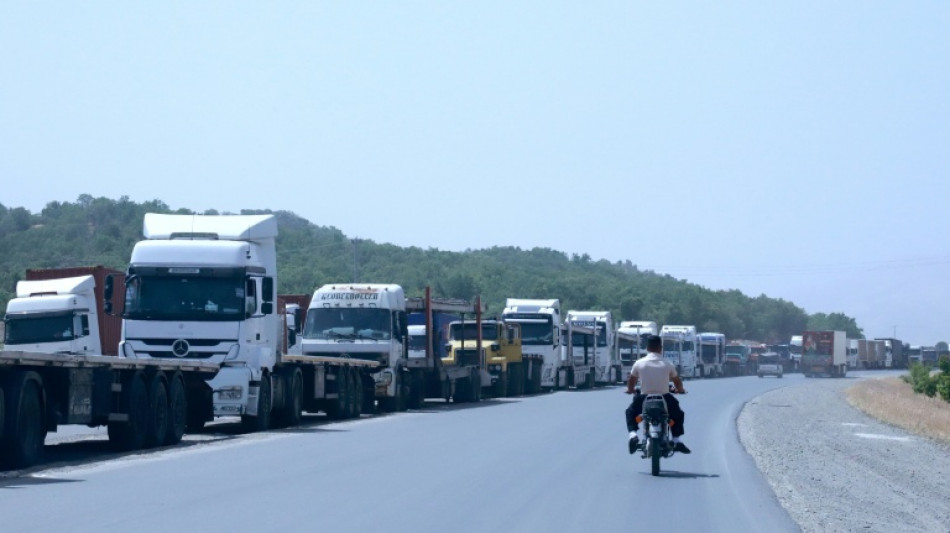
-
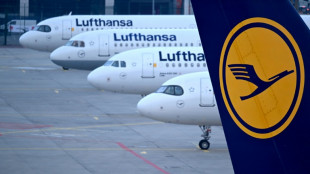 Lufthansa planning thousands of job cuts: sources
Lufthansa planning thousands of job cuts: sources
-
China at UN warns of return to 'Cold War mentality'
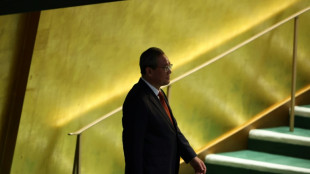
-
 England great Alphonsi expects Canada to shine in Women's Rugby World Cup final
England great Alphonsi expects Canada to shine in Women's Rugby World Cup final
-
Tottenham reject interest in reported record £4.5bn sale

-
 Man Utd boss Amorim admits uncertainty ahead of Brentford clash
Man Utd boss Amorim admits uncertainty ahead of Brentford clash
-
Zverev wins Beijing opener as Gauff launches title defence

-
 Barca duo Raphinha, Joan Garcia injured, out for PSG clash
Barca duo Raphinha, Joan Garcia injured, out for PSG clash
-
Trump hopes more opponents to be charged after 'dirty cop' Comey

-
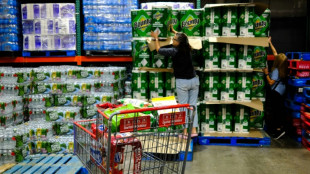 US Fed's preferred inflation gauge rises, with more cost pressures expected
US Fed's preferred inflation gauge rises, with more cost pressures expected
-
Facebook, Instagram to offer paid ad-free UK subscriptions

-
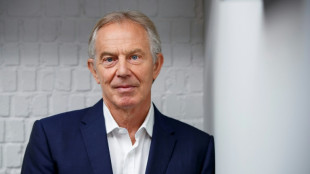 Former UK PM Blair could lead transitional authority in Gaza: reports
Former UK PM Blair could lead transitional authority in Gaza: reports
-
Netanyahu says Palestinian state would be 'national suicide' for Israel
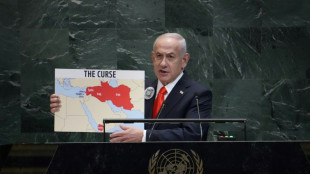
-
 The nations and firms threatened by Trump's pharma tariffs
The nations and firms threatened by Trump's pharma tariffs
-
Trailblazing rugby chief Griffin proud of 'incredible' strides for women's game

-
 Brother of Oasis stars denies rape, other charges
Brother of Oasis stars denies rape, other charges
-
EU steps up 'drone wall' plans after Russian incursions
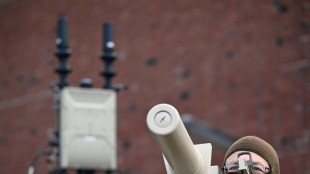
-
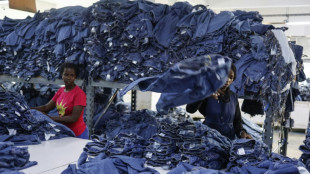 Kenyan jeans factory to fire workers as US deal expires
Kenyan jeans factory to fire workers as US deal expires
-
Arteta hails Saliba's impact as new Arsenal deal looms

-
 England's Jones channels grief in bid for Women's Rugby World Cup glory
England's Jones channels grief in bid for Women's Rugby World Cup glory
-
UN identifies 158 firms linked to Israeli settlements
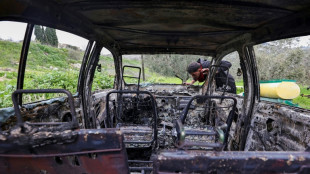
-
 Canada's Patrick Watson channels dread into new 'Uh Oh' album
Canada's Patrick Watson channels dread into new 'Uh Oh' album
-
Trump brands indicted opponent Comey a 'dirty cop'

-
 Walker an all-time great, says Guardiola ahead of Man City return
Walker an all-time great, says Guardiola ahead of Man City return
-
Alonso warns against overconfidence before Madrid derby

-
 Fritz says path to Grand Slam glory goes through Alcaraz, Sinner
Fritz says path to Grand Slam glory goes through Alcaraz, Sinner
-
UK court drops terror case against Kneecap rapper

-
 UK's Starmer urges liberals to fight 'the lies' told by far right
UK's Starmer urges liberals to fight 'the lies' told by far right
-
Bagnaia and Pennetta among first Winter Olympic torch carriers: organisers

-
 Sarkozy conviction exposes political divide in crisis-hit France
Sarkozy conviction exposes political divide in crisis-hit France
-
Ryder Cup begins in electric atmosphere at Bethpage Black
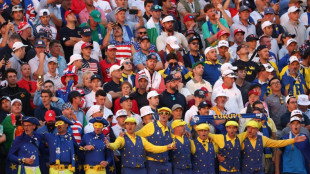
-
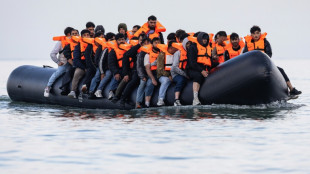 UK to launch digital ID scheme to curb illegal migration
UK to launch digital ID scheme to curb illegal migration
-
Chelsea's Palmer sidelined with groin injury

-
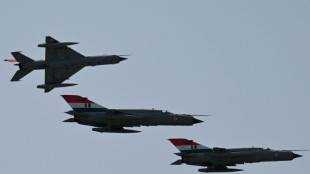 India retires Soviet fighter jet after six decades
India retires Soviet fighter jet after six decades
-
Slovak parliament approves anti-LGBTQ constitutional change

-
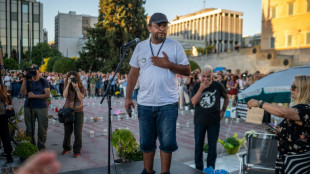 Train tragedy hunger striker captures hearts in Greece
Train tragedy hunger striker captures hearts in Greece
-
I.Coast historic beachside town boasts new modern art museum
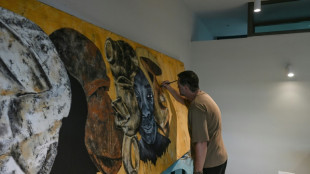
-
 PSG captain Marquinhos out with thigh injury
PSG captain Marquinhos out with thigh injury
-
UK court drops terror charge against Kneecap rapper
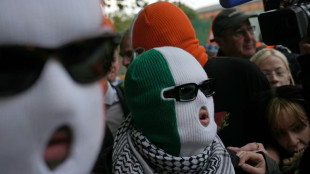
-
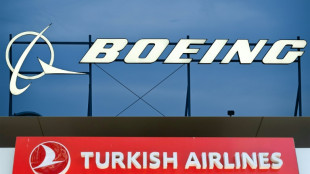 Turkish Airlines inks big Boeing deal after Erdogan visits US
Turkish Airlines inks big Boeing deal after Erdogan visits US
-
Liverpool's Leoni faces year out after ACL injury on debut

-
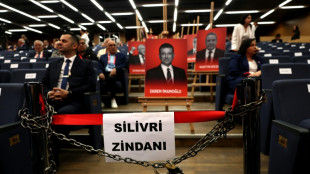 'We are not afraid,' jailed Istanbul mayor tells court
'We are not afraid,' jailed Istanbul mayor tells court
-
Canada's women tilt for World Cup thanks to 'incredible' crowdfunding

-
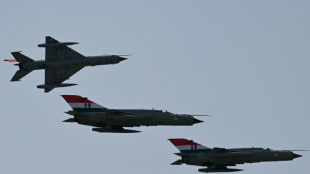 India retires 'flying coffin' Soviet fighter jet after six decades
India retires 'flying coffin' Soviet fighter jet after six decades
-
Erasmus makes late Springboks change as Nche injured

-
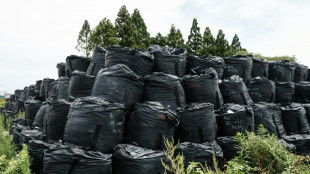 Ukrainian YouTuber arrested in Japan over Fukushima livestream
Ukrainian YouTuber arrested in Japan over Fukushima livestream
-
Foreign doctors in Gaza describe worst wounds 'they've ever seen'
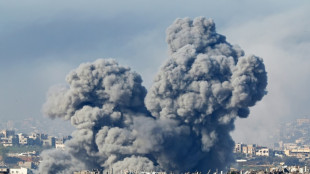
-
 India-Pakistan to clash in first Asia Cup final
India-Pakistan to clash in first Asia Cup final
-
South Asia monsoon: climate change's dangerous impact on lifeline rains
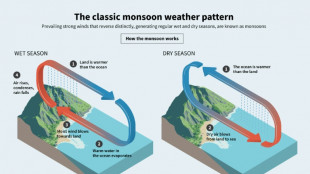
-
 Million-year-old skull could change human evolution timeline
Million-year-old skull could change human evolution timeline
-
Gauff launches China Open title defence in style


Iranians buying supplies in Iraq tell of fear, shortages back home
Near the once-bustling Iraqi border crossing of Bashmakh, Iranian driver Fatah stocked up on rice, sugar and tea, staples that have become increasingly hard to get back home.
Fatah -- who like others in this story is being identified by a pseudonym -- was among dozens of truck drivers waiting impatiently to cross back into Iran from Iraq's northern Kurdistan region, hauling not only their commercial cargo, but also essential goods for their families after days of Israeli attacks.
AFP spoke with at least 30 Iranians near the Bashmakh crossing. They all refused to be interviewed on camera, and the few who agreed to describe life back home asked to remain anonymous for fear of reprisals back in Iran.
"There are shortages of rice, bread, sugar and tea," Fatah said Tuesday.
Finding fuel has also become a major problem, with long queues of cars waiting hours in front of gas stations hoping the fuel did not run out, the 40-year-old driver added.
A long journey awaits Fatah, who must deliver his load of asphalt to the Iranian port of Bandar Abbas about 1,700 kilometres (1,060 miles) away, before turning around and driving almost the same distance back to the western city of Marivan, where his family lives and which has so far been spared bombardment.
But "my route passes near the Natanz nuclear facility", Fatah said, referring to one of Iran's underground uranium enrichment sites that Israel has struck several times since the start of its campaign last week.
- Panic buying -
Israel launched a devastating surprise attack on Friday targeting Iran's military and nuclear sites and killing top commanders and scientists.
Israel says its attacks are aimed at preventing Iran from obtaining a nuclear weapon, an ambition Tehran denies.
At least 224 people, including women and children, have been killed in the Israeli strikes, according to official figures.
The assault has prompted retaliatory barrages of missiles from Iran that have killed at least 24 people in Israel, according to the prime minister's office.
Aram, 28, keeps calling his wife, fearing for his family's safety after they had to flee their home when a strike hit a military site nearby in the city of Sanandaj.
"My family is safe, but they had to move in with relatives in a village," Aram said.
His wife told him that many families who lived near military sites in the area had been similarly displaced.
The father of two said the shortages back home were mostly due to panic-stricken Iranians who rushed to markets to stockpile basic supplies.
- 'Shocked and distraught' -
Back in Iran, car dealer Shwan recalled how Israeli jets struck several military sites near his city of Bukan in the west.
"People are shocked and distraught, they don't know what they should do," the 35-year-old told AFP via a messaging app from inside Iran.
"We have a major problem with bread shortages," he said.
People were queuing at bakeries for hours to get loaves of bread, sometimes to no avail, Shwan said.
"Sometimes four members of one family go around bakeries looking for bread," he added.
"It is also difficult to find rice or oil," and many civil servants have not received their salaries yet, he said.
Avin, a 38-year-old seamstress, told AFP via a messaging app that the war "has spread fear among residents", even though the bombs have not touched her town of Saqqez in northwest Iran.
"Some families with children left to villages outside the city," she said.
Like others, she fears more shortages to come.
"Most of the provisions come from Tehran," which has seen a massive exodus and is also grappling with scarcity.
"Because of this, the market in our city came to a standstill."
S.Spengler--VB
